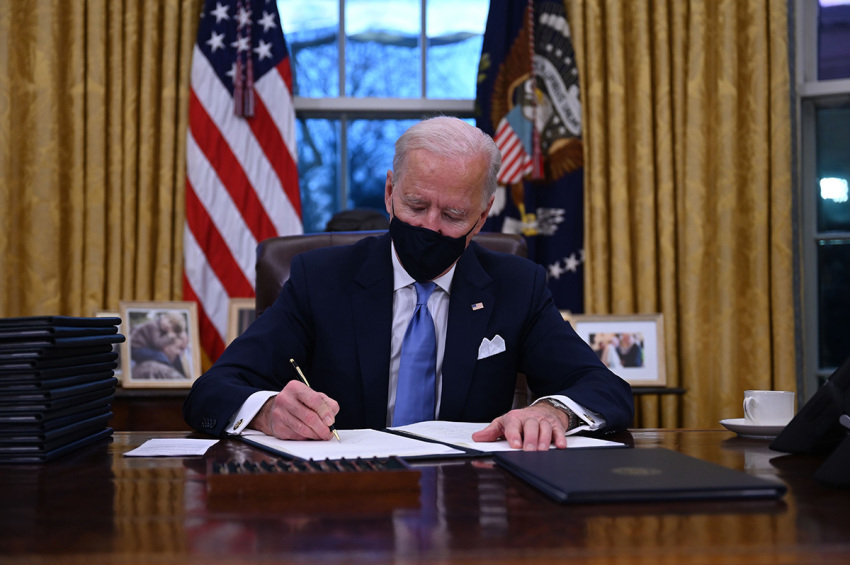Biden's trans military policy reversal will have catastrophic consequences, opponents warn

President Joe Biden has reversed a Trump executive order that banned trans-identified individuals from serving in the U.S. military, drawing criticism from military veterans who warn that the policy change will have catastrophic consequences.
The White House announced the reversal Monday, stating that Biden had signed an executive order "... that sets the policy that all Americans who are qualified to serve in the Armed Forces of the United States should be able to serve.”
In July 2017, then-President Donald Trump announced in a series of tweets that individuals who identify as transgender would be prohibited from serving in the U.S. Armed Forces. Among the issues Trump cited at the time included the cost of paying for elective cosmetic surgeries and cross-sex hormones — estimated between $2.4 million and $8.4 million each year. Trans-identified soldiers would also be taking an extensive amount of time off to recover from elective cosmetic procedures.
“Our military must be focused on decisive and overwhelming victory and cannot be burdened with the tremendous medical costs and disruption that transgender in the military would entail,” Trump wrote in one Twitter post when he reversed the Obama administration's policies on trans-identified people serving in the military.
Biden's reversal came as incoming Secretary of Defense Lloyd Austin gave testimony during his Senate confirmation hearing on Jan. 19 indicating that the restrictions would be lifted.
“I truly believe … that if you’re fit and you’re qualified to serve and you can maintain the standards, you should be allowed to serve,” Austin said in response to a question from Sen. Kirsten Gillibrand, D-N.Y.
"And you can expect that I will support that throughout.”
Opponents of the reversal of the restrictions say that the move will impair military readiness and fuels further division in an already divided society.
Tony Perkins, president of the Washington, D.C.,-based Family Research Council and a U.S. Marine veteran, said in a statement Monday that the move betrays Biden's promise to bring unity to a divided country.
"Providing our service members with the resources to keep our country safe would help move our country in this direction. Instead, President Biden is diverting precious dollars from mission-critical training to something as controversial as gender reassignment surgery. The military cannot focus its efforts on preparing to fight and win wars when it is being used as a vehicle to advance the far-left's social agenda," Perkins said.
Lt. Gen. Tom Spoehr, director of The Heritage Foundation think-tank's Center for National Defense, said in a statement shared with The Christian Post Monday that "political correctness" was being prioritized over military readiness.
"By overturning the current policy regarding individuals suffering from gender dysphoria, the commander in chief is signaling that he is more interested in social engineering than safeguarding the health and well-being of American service members,” Spoehr said.
"After considerable study, the previous administration found gender dysphoric people attempt suicide at about nine times the rate of the general population. Service members diagnosed with gender dysphoria are also nine times more likely to have mental health encounters with a professional."
Given that military service is inherently stressful, he continued, the rate of suicide among military personnel is already higher than that of the general population.
"It would be immoral to place individuals at higher risk from mental injury — such as those suffering from gender dysphoria — in a situation where they are likely to experience extraordinary stress,” he said.
The Pentagon has said that approximately 9,000 service members identify as transgender, though independent estimates have put the number at around 16,000, according to The Wall Street Journal. Fewer than 1,000 have received a formal diagnosis of gender dysphoria.
In 2016, the RAND Corporation published a study on Pentagon medical expenditures and found that the costs incurred by U.S. taxpayers to pay for trans-identifying service members' medical costs fell somewhere between $2.4 million and $8.4 million each year.



























